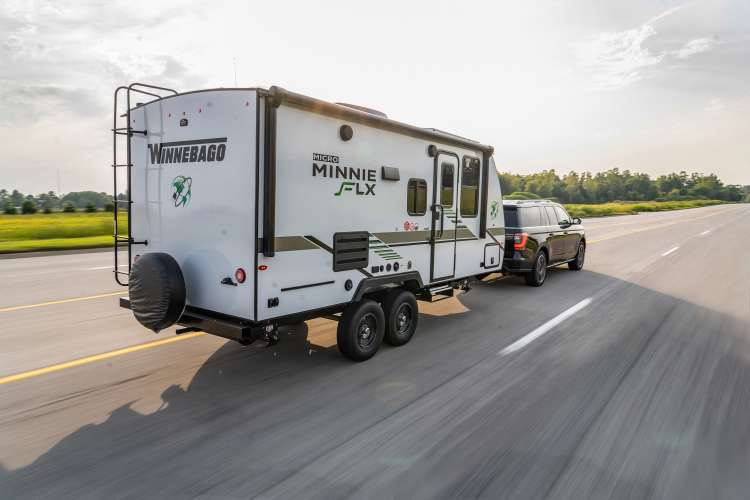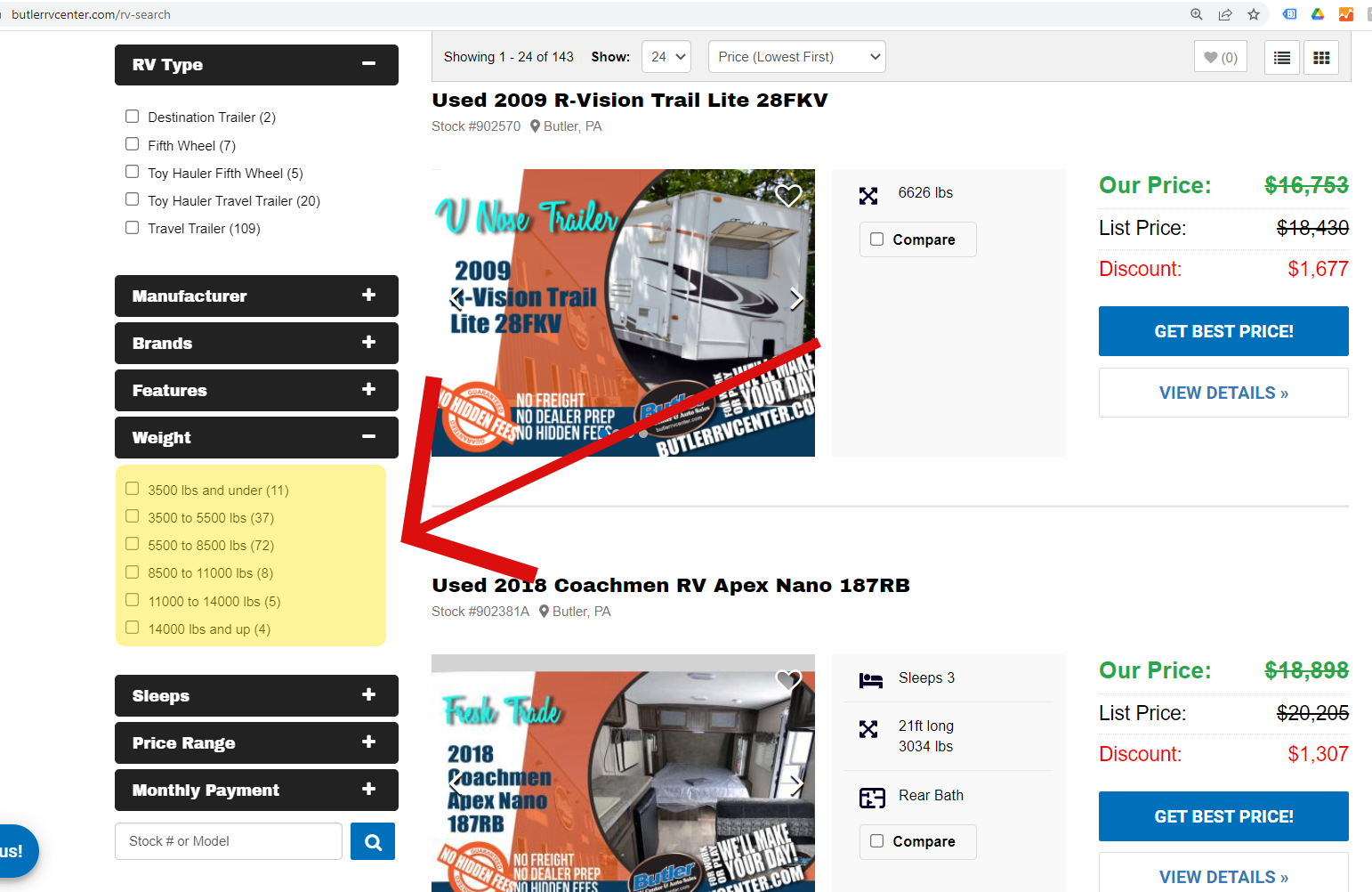How to Select the Right Tow Vehicle and Travel Trailer or Fifth Wheel
Published on Jun 09, 2022Do you want to take your RV on the road, but don’t know what tow vehicle is right for you? This can be a difficult decision, especially with all of the different options available. In this blog post, we will discuss the different types of tow vehicles and trailers, and help you decide which combination is best for you. We’ll also provide some tips on how to select the right tow vehicle and trailer for your needs. So, whether you’re just starting out in the RV world or are looking for an upgrade, read on for some helpful advice.
When choosing a tow vehicle, the most important factor is the weight of the trailer. You will need to select a vehicle that can safely and easily tow the weight of your trailer. The next thing to consider is the type of trailer you will be using. Travel trailers and fifth wheels come in a variety of sizes and weights, so you’ll need to make sure that your chosen vehicle can handle the size and weight of your particular model. Once you’ve considered these factors, you can begin narrowing down your options.
Because every vehicle, travel trailer and fifth wheel are different there’s no one size fits all answer. However, we can provide you with some basic guidelines that should point you in the right direction.

The Terms – Alphabet Soup
The Tow Vehicle:
GVWR – Gross Vehicle Weight Rating. Max weight your vehicle can tow and cargo. Sometimes displayed on a sticker in your car door, or you can call your vehicle make’s dealer and provide the VIN. They will provide you with the GVWR.
GCWR – Gross Combined Weight Rating. Vehicle GVWR + Trailer GVWR
Towing Capacity – The maximum weight of the trailer (including the trailer’s cargo) that the tow vehicle can tow
GAWR – The gross axle weight rating. This is the maximum weight that can be placed on an axle
Payload – How much cargo weight the truck can support.
The Travel Trailer or Fifth Wheel:
GVWR – Gross Vehicle Weight Rating. Like the tow vehicle GVWR, this is the maximum weight of the trailer plus its cargo, including full holding (water/gray/black) tanks.
UVW/Dry Weight – Weight of trailer without anything in or liquid in tanks.
CCC – Cargo Carrying Capacity. This is the weight that can be put in the trailer, and it includes weight of liquid water tanks. This is often calculated by GVWR – UVW or GVWR can be estimated by UVW + CCC.
Tongue Weight – This is the weight of the front part of the trailer, and it counts directly against the payload of the tow vehicle.
General Rules (Not Always True)
How much a vehicle can tow depends on the type of vehicle and the towing options already installed in the vehicle. A general rule of thumb is
How much a vehicle can tow depends on the type of vehicle and the towing options already installed in the vehicle. You must determine the limits of your vehicle but a general rule of thumb is:
- for a front wheel drive car or small SUV is 1500 pounds
- a mid-size all-wheel drive SUV or pickup 3000 pounds
- a full size SUV or half-ton pickup truck 5000 pounds or more.
- If planning on towing a fully loaded camper (full water tank), then try to keep trailer weight to 75% of the GVWR
- Midsize trailers (20-30′) are typically 6,000-8,000 pounds.
- Larger than 30′ trailers are 10,000 pounds or more.
- Important trailer information such as weight, pounds per axle and VIN can be found on the frame of the main door entrance.
Already Own Your Tow Vehicle?
If you already own a truck or larger SUV then you have half the battle already fought. You can find your tow capacity by using our towing tool or by calling your local vehicle dealership and provide the VIN. Your VIN helps identify the engine, frame, tow packages and brakes that are on your vehicle.
Now that you have this information, you can narrow down trailer selection by weight. Most RVers keep their trailer GVWR under their towing vehicle towing capacity, and you should also keep the tongue weight and GAWR within range. Travel trailers can reduce their hitch or tongue weight by installing a weight-distribution hitch. With the GVWR information in your arsenal you can head over to butlerrvcenter.com and filter down your search by “Weight”.

Selecting Trailer First
Choosing the trailer first gives you the freedom to pick a trailer on features that fit your needs and not weight. Not to mention it may take longer to find an RV then a tow vehicle that fits you and your trailer. You do want to keep in mind any vehicle limitations when shopping. For example, if you need to fit 8 people in your vehicle, then you are going to be in larger SUVs and not trucks. This eliminates all fifth wheels as they require a truck to pull.
Once armed with the weight of the trailer you choose then you should purchase a vehicle that can tow that weight. This is important because you not only want to be safe and handle the load you’re towing, but you want to ensure that you can maintain reasonable speeds over all types of terrain.
Final Thoughts
We hope you have found this article helpful and we are always here to answer any questions you may have. Our specialists have years of experience recommending the appropriate trailer and towing add-ons to get you camping safely. Feel free to call us at 724-282-8600 or start a chat with us here on the site.
You may also want to check out Keep Your Day Dream’s video on selecting a travel trailer. They do a great job of breaking it down and providing a payload calculator.

